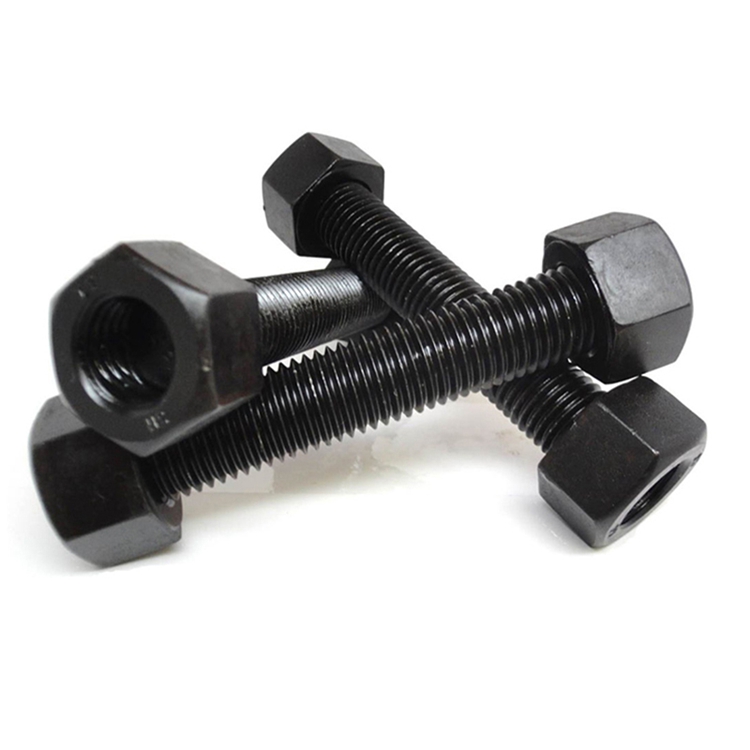washers factories
Dec . 03, 2024 17:36 Back to list
washers factories
The Role of Washer Factories in Modern Manufacturing
In today’s rapidly evolving industrial landscape, washer factories play a crucial role in the manufacturing supply chain. These factories are dedicated to producing various types of washers—small yet significant components used in a myriad of applications, from automotive to aerospace, construction to electronics. The importance of washers lies in their ability to distribute loads, prevent leakage, and reduce friction in mechanical assemblies. This article explores the significance of washer factories, the types of washers they produce, and the challenges they face in the contemporary manufacturing environment.
Understanding Washers
Washers are flat discs with a hole in the center, typically made from materials such as metal, rubber, or plastic. Their primary functions include providing a smooth bearing surface, acting as a spacer, and ensuring even pressure distribution when fastening components. There are several types of washers, including flat washers, lock washers, and spring washers, each serving unique purposes depending on the application.
Flat washers are often used in bolted connections to prevent damage to the assembly surface and distribute the load over a larger area. Lock washers, with their special design, are critical in environments where vibration can lead to loosening bolts. Spring washers, designed to exert pressure or absorb shock, are essential for systems requiring flexibility and resilience.
The Manufacturing Process
The production of washers involves various manufacturing techniques, including stamping, machining, and molding. Washer factories operate with precision machinery capable of producing these components at scale. The production process begins with raw material selection, where manufacturers choose suitable materials based on the washer’s intended use. High-strength steel may be selected for automotive applications, whereas plastic may be used for electrical components.
Once the raw materials are procured, the manufacturing process typically follows these steps
1. Material Preparation Raw materials are cut into the required dimensions and shapes. 2. Forming The materials are formed into washers using stamping machines, which apply high pressure to create precise shapes. 3. Finishing This stage involves surface treatments, such as coating or plating, to enhance durability and resistance to corrosion. 4. Quality Control After the washers are produced, rigorous quality control checks ensure they meet industry standards and specifications.
washers factories

Challenges Faced by Washer Factories
While washer factories are integral to many industries, they face several challenges in today’s manufacturing environment. Global supply chain disruptions have made sourcing raw materials more difficult and expensive. Moreover, the rising costs of energy and labor impact overall production costs, forcing factories to find innovative ways to maintain competitiveness.
Additionally, the push for sustainability and environmentally friendly practices is reshaping manufacturing processes. Factories are being called to enhance their operations, minimizing waste and emissions while adopting sustainable sourcing and production methods. This transition often requires significant investment in new technologies and processes.
Embracing Innovation
To tackle these challenges, washer factories are increasingly adopting advanced technologies such as automation, robotics, and Industry 4.0 practices. Automation processes enhance efficiency and reduce human error, while data analytics help optimize production schedules and inventory management. Moreover, the integration of smart manufacturing technologies allows factories to better respond to changes in demand, ensuring timely delivery of high-quality products to customers.
Another vital aspect of modern washer manufacturing is the focus on customization and rapid prototyping. As industries strive for unique solutions, factories are utilizing advanced manufacturing techniques such as 3D printing, which enables the production of custom washers that meet specific customer requirements without significant lead times.
Conclusion
Washer factories are an indispensable part of the industrial ecosystem, providing essential components that ensure the reliability and efficiency of various mechanical assemblies. As these factories navigate the challenges of modern manufacturing, their ability to embrace innovation and prioritize sustainability will determine their success in a competitive market. By continuing to adapt to changing technological landscapes and customer needs, washer manufacturers will remain at the forefront of industrial progress, contributing to a more efficient and sustainable manufacturing future.
Latest news
-
High-Quality Panel Stud Bolt Reliable Panel Stud Bolt Factory & Suppliers
NewsJul.08,2025
-
High-Precision Fine Thread Locknuts Manufacturer & Supplier Custom Solutions
NewsJul.08,2025
-
PH Imperial Stud Bolt – High Strength Fasteners from Leading Supplier & Factory
NewsJul.07,2025
-
High-Quality Allen Wrench Bolts Leading Factory, Company & Suppliers
NewsJul.07,2025
-
Wholesale Ball Stud Bolt - High Quality Supplier & Factory Price Reliable Wholesale Ball Stud Bolt Company
NewsJul.06,2025
-
High-Strength Alloy Bolts Manufacturer & Supplier Quality Alloy Fasteners Factory
NewsJul.06,2025
